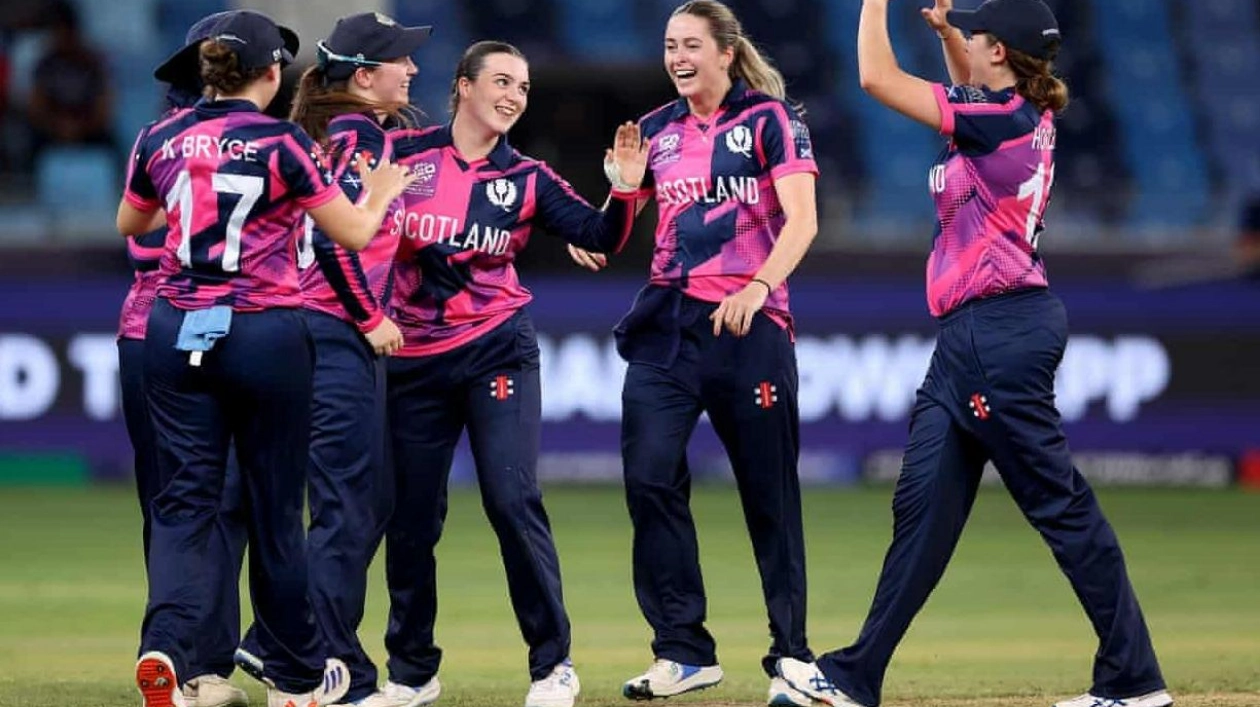Tillicoultry, a small town in Clackmannanshire, Scotland, just a short drive from Stirling, is home to 4,600 residents and boasts the proud distinction of being the cradle of modern Scottish women's cricket. In early 2001, a modest gathering convened in a local residence, where a group of enthusiasts, fueled by coffee, assembled to form the inaugural Scotland women's cricket team. The previous year, the Scottish Cricket Union (now Cricket Scotland) had taken the momentous step of establishing the nation's first women's team, which had already faced off against Northumberland, Cumbria, and Durham. However, the real test came in 2001 when Scotland joined England, Ireland, and the Netherlands in the European Championship.
The driving force behind that pivotal 2001 meeting? A then 19-year-old Kari Carswell (formerly Anderson), who now coaches the Scotland Under-19s, has served as the head coach of the senior Scotland team, and recently held the position of Head of Women's Cricket for Middlesex and MCC. With 152 caps for Scotland, Carswell's involvement in the sport is both extensive and influential. It's a testament to the close-knit nature of Scottish women's cricket in 2001 that Carswell not only hosted the selection meeting but was also among the chosen players for the tournament. 'There weren't many options to choose from,' she recalls.
'In 2001, there was no structure. No women's club cricket. No girls' school cricket. That meeting marked the beginning of our journey to build a competitive team and establish a supporting structure.' Reflecting on this, the fact that Scotland is now competing in their first World Cup, just two decades later, is a remarkable achievement. Their upcoming match against England on Sunday, in the penultimate Group B fixture at Sharjah, adds an extra layer of excitement. 'As a Scot, you always want to beat England,' Carswell notes.
Historically, Scotland has had few chances to do so, making Sunday's match the first T20 international between the two nations. Their only other recognized international clash was during the 2001 Women's European Championship at Bradfield College in Reading. Scotland's maiden ODI was a steep learning curve: seven players were dismissed for zero, as England's Nicky Shaw, Laura Harper, and Isa Guha dominated. Scotland was bowled out for 24, with England winning by a staggering 238 runs. Carswell, who opened the batting, scored two before being bowled by Shaw. 'It was a whole new world for us,' she remembers.
Interestingly, Scotland and England might also lay claim to the first-ever women's international match, though it's not officially recognized. This two-innings match, organized by the English Women's Cricket Association, took place in Worcester in 1932. The WCA, formed in 1926, fostered strong ties between the two nations, with the first England captain, Betty Archdale, educated at St Leonards School in St Andrews. Scotland was affiliated with the WCA, and the Worcester match aimed to boost interest in cricket north of the border. The 21-year-old all-rounder Myrtle Maclagan, born to a Scottish father and an English mother, played for both teams. 'I was young, passionate, and thrilled,' she later recalled.
Maclagan's stellar performance at Worcester, taking six for 77 and top-scoring for Scotland in both innings, couldn't prevent a defeat. The match report from Marjorie Pollard, a WCA founder, described the game as 'leisurely and correct, but full of interest and good cricket.' The promising start in 1932 didn't translate into sustained growth in Scotland, unlike in England. Scotland missed the first World Cup in 1973, and the Scottish Cricket Union largely overlooked women's cricket. In 1977, The Cricketer reported that two English women, Mrs Greta Inman and Mrs Alison Wilson, attempted to fill the void by starting the Scottish Women's Cricket Association. However, in 1982, Scotland declined an invitation to join the International Women's Cricket Council, limiting international opportunities until Cricket Scotland's revival in 2000.
In November 2022, Cricket Scotland announced the first paid contracts for women, marking a 'watershed moment.' Carswell is amazed by the progress over the past two decades. 'If you had told me in 2001 that we'd reach the World Cup in 23 years, people would have jumped at the chance. The resources we have in Scotland, compared to our competitors, are incomparable. We have every reason to be proud.' As for Sunday's match against England, Carswell notes, 'It's no different from 2001 – Scotland enters as the underdog. But every underdog has its day.' England, take heed.






